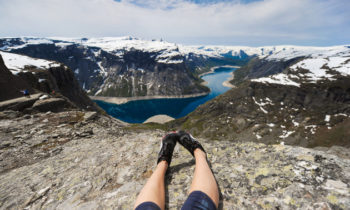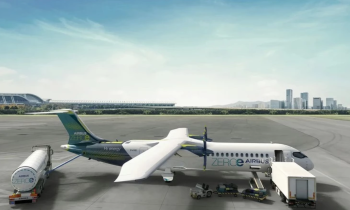 NORWAY WAS JUST named the happiest country on earth by the United Nations World Happiness Report 2016 Update, which ranks 156 countries by their happiness levels.
NORWAY WAS JUST named the happiest country on earth by the United Nations World Happiness Report 2016 Update, which ranks 156 countries by their happiness levels.
This is the fourth Happiness Report and uses happiness, personal experience and general well-being as indicators of the quality of human development.
One of the main findings of the World Happiness Report is the people are happier living in societies where there is less inequality, and that inequality of well-being can increase inequalities in societies.
So, why are we so happy?
So what about Norway? Why are we so happy? On a personal level I feel very grateful to have been born in Norway.
Of course we are happy in Norway. We live in a peaceful and secure country with a strong and stable economy. But what makes Norway and the other Nordic countries unique is the equality and inclusiveness in our societies.
For example, we have dropped all the polite forms expressing hierarchy in language, and nobody would be addressed as “Sir” or “Madam” in Norway. This makes us all feel more equal.
More importantly, there is a consensus among all political parties to continue supporting a welfare system for all citizens with free education (including higher education), a free health service and a policy that promotes inclusiveness for all, including people with special needs.
When you don’t have to worry about what will happen if you get sick or you need childcare for your kids while you are working, you will have less stress in your life. Ultimately this will mean that you will be happier.
I think that happiness is very much connected with you feeling that you and your family are safe and will be taken care of. And Norwegians know that we can rely on our State to help us if things go wrong.
My life has been very much influenced by the Norwegian welfare system and the policy of gender equality. I have had long maternity leaves and my children have been in excellent kindergartens.
My husband and I have had the privilege of flexible working hours, so one of us could always drop the children to daycare in the morning and pick them up in the afternoon.
When the children were small I worked from home in the evenings, after they’d gone to bed. This was very demanding sometimes, but a job is so much more than just a salary. Having a job means that you have a strong sense of your own identity and a job gives you your own financial independence.
The strong focus on gender equality might be one of the main reasons behind Nordic happiness. Gender equality in Norway is not only about women’s rights, but increasingly about the position of men in the family and in broader society too.
The thinking in Norway is that women’s equality cannot be achieved without greater participation of men in childcare, and that fathers have a right to be present in their children’s upbringing. Fathers now have specific paternity leave when a baby is born. Shared custody between mother and father is the norm in Norway now too.
Norway isn’t perfect
Norway is not perfect. We have our own problems, even if they are less severe than the problems other countries have.
We do not boast and we never express our happiness openly. In fact we might be seen from the outside as being cold and a little boring.
But the Happiness Report clearly documents that happiness is not about the price of a pint of beer, going to fancy restaurants or buying yourself the latest fashion.
Happiness is about normal, everyday life, and how we are included and integrated in the society we live in. And I think that is the secret of happiness.
Else Berit Eikeland is the Ambassador of Norway to Ireland.
(thejournal)



